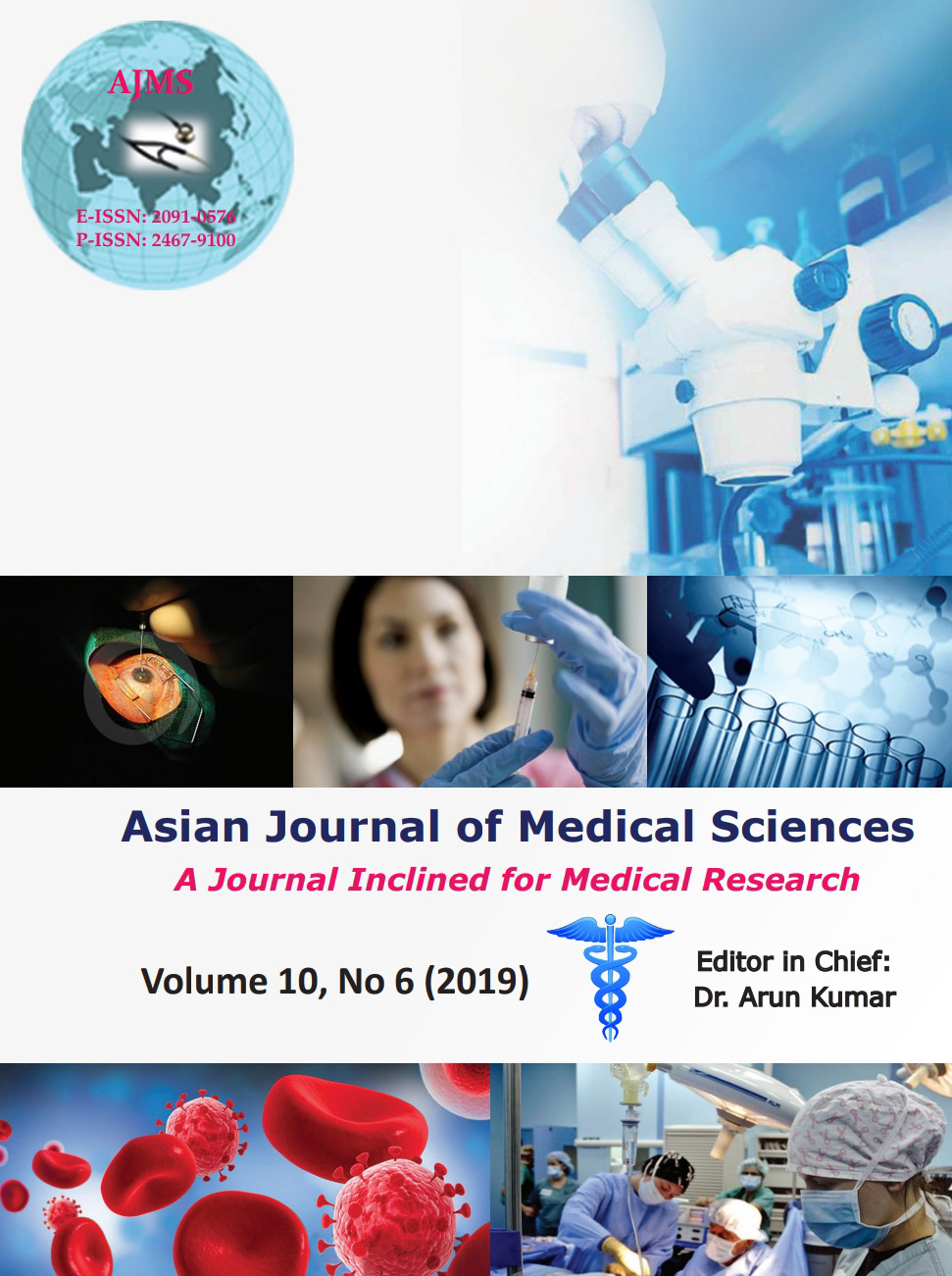Study of adverse drug reactions and clinical profile of elderly in relation to polypharmacy
Keywords:
Adverse drug reactions (ADR, Clinical profile, Elderly, PolypharmacyAbstract
Background: Polypharmacy is a becoming more prevalent in older adults and adverse risk increases with age-related change. Adverse drug reactions (ADRs) are common in older adults and worrisome aspect of treatment in elderly.
Aims and Objective: The study aimed to identify the common clinical conditions leading to polypharmacy and to compare the adverse drug profiles of the 2 groups.
Materials and Methods: This case-control study was conducted in Hospitals attached to BMCRI, where 200 patients aged 65 or more were interviewed. 100 elderly patients using 5 or more drugs were identified as cases and assessed against a control group of 100 patients.
Results: Our study found that ADRs were found to be three times higher in individuals on polypharmacy compared to the control group (OR 3.4675 95% CI 1.6241 to 7.4035). The most commonly occurring ADRs were dyspepsia (OR 1.9259), drowsiness (OR 3.5926) and fatigue (OR 1.5319) with increased incidence in the case group. The most common conditions associated with polypharmacy were found to be hypertension (53%), diabetes mellitus(46%), COPD(14%) and IHD(14%). 66% of the study group had two or more of the above diseases, whereas in the control group only 32% had multiple illnesses. The most commonly prescribed medications were antihypertensives (61%), hypolipidemics (44%), antiplatelets (41%) and antibiotics(40%).
Conclusion: Polypharmacy in the elderly comes with a significant increase in adverse effects. The reduced pill burden will not only decrease ADRs and improve compliance, but will also result in greater patient satisfaction and mental health, thereby improving the quality of geriatric care.
Downloads
Downloads
Published
How to Cite
Issue
Section
License
Authors who publish with this journal agree to the following terms:
- The journal holds copyright and publishes the work under a Creative Commons CC-BY-NC license that permits use, distribution and reprduction in any medium, provided the original work is properly cited and is not used for commercial purposes. The journal should be recognised as the original publisher of this work.
- Authors are able to enter into separate, additional contractual arrangements for the non-exclusive distribution of the journal's published version of the work (e.g., post it to an institutional repository or publish it in a book), with an acknowledgement of its initial publication in this journal.
- Authors are permitted and encouraged to post their work online (e.g., in institutional repositories or on their website) prior to and during the submission process, as it can lead to productive exchanges, as well as earlier and greater citation of published work (See The Effect of Open Access).




